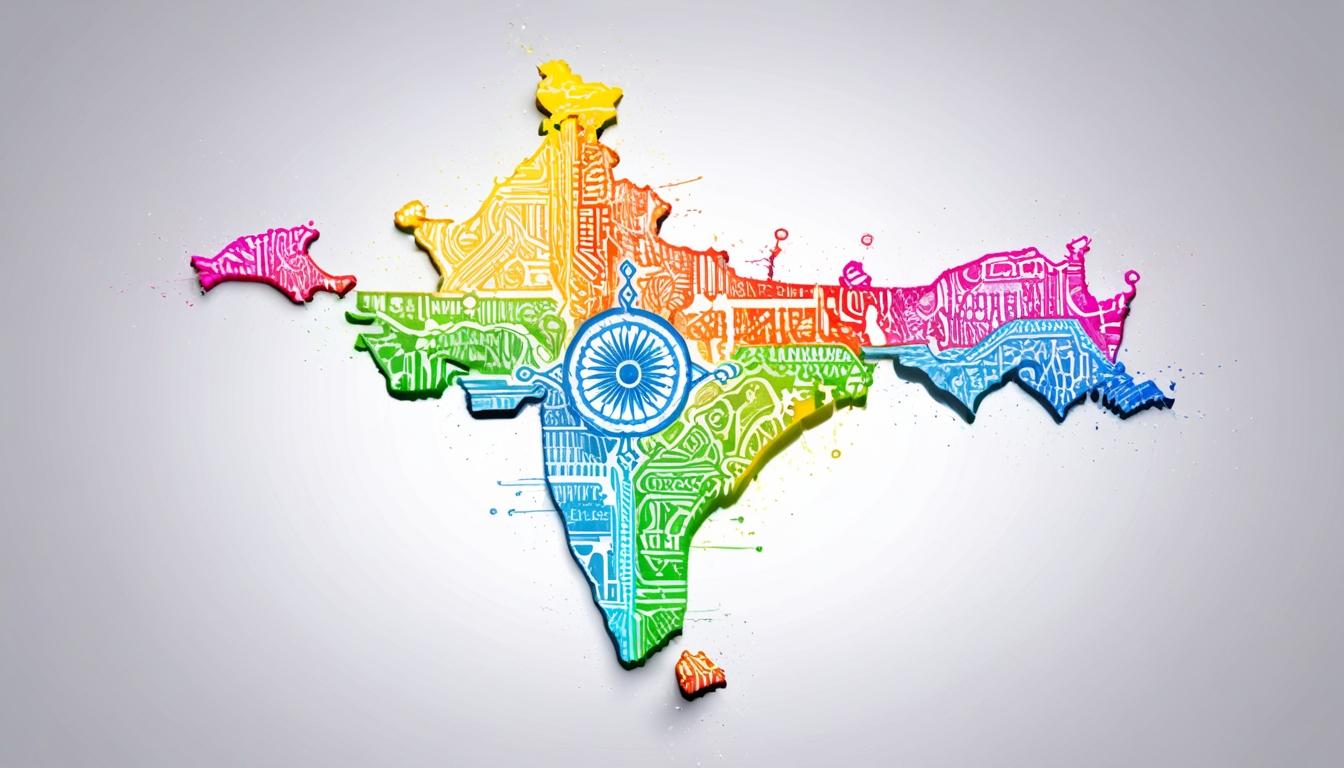India is rapidly advancing its adoption of artificial intelligence (AI), with generative AI (GenAI) anticipated to make up a significant portion of total AI investment in the coming years. A recent study by Lenovo in collaboration with IDC highlights that GenAI is expected to account for 43% of India’s AI expenditure by 2025, reflecting a major shift in how AI technologies are being integrated across the country’s industries.
The study reveals that India’s AI spending is projected to increase by nearly 2.7 times between now and 2025, underscoring a robust investment environment. Despite this growth, the pace of adoption in India is somewhat cautious when compared with the wider Asia Pacific region. Currently, 49% of Indian organisations are either evaluating or planning AI initiatives within the next year, slightly below the regional average of 56%. This suggests that while interest in AI is strong, many organisations are still in the early phases of maturity with respect to deployment.
A key driver behind the surge in AI investment is the rising prominence of generative AI. This technology, which includes capabilities such as automated content creation and code development, is forecast to dominate AI spending. Indian enterprises have set ambitious expectations, aiming for a 3.6-fold return on their AI investments, prompting a focus on carefully planned, outcomes-oriented deployments.
Alongside investment considerations, the study emphasises the critical importance of Governance, Risk, and Compliance (GRC) in AI adoption. GRC has jumped to the top priority list for Chief Information Officers (CIOs) within the Asia Pacific region heading into 2025, with Indian companies recognising the need for robust frameworks. However, only 19% of Indian CIOs currently report having fully developed AI governance structures in place. Concerns related to ethics, algorithmic bias, and data privacy continue to pose challenges. Sumir Bhatia, President of Lenovo’s Infrastructure Solutions Group for Asia Pacific, stated, “Secure and responsible AI is now non-negotiable,” highlighting the heightened focus on trustworthy AI use.
When examining use cases, Indian companies are prioritising AI applications that drive revenue, notably in sales, followed by marketing and software development. This contrasts somewhat with broader Asia Pacific trends, where AI is often leveraged more extensively for IT operations, cybersecurity, and software development. The commercial orientation of AI in India signals the country’s emphasis on enhancing customer engagement and business growth through AI technologies.
Infrastructure preferences among Indian organisations also reflect a strategic balancing act. Approximately 63% favour hybrid or on-premise AI deployments, closely mirroring the global average of 65%. Speaking on this, Amit Luthra, Managing Director of Lenovo ISG India, commented, “Hybrid architectures offer the best of both worlds—scalability and control.” Indian firms appear reluctant to sacrifice compliance, data sovereignty, and latency considerations that come with cloud-only models, particularly when handling sensitive AI workloads.
The adoption of AI-powered devices is another important development. In the Asia Pacific region, 43% of organisations have noted productivity improvements from early use of AI-integrated personal computers (PCs). In India, more than half of organisations surveyed plan to adopt AI-enhanced PCs, recognising their role in enabling faster decision-making and operational efficiencies.
Talent shortages are also shaping the AI landscape in India. The study shows that 29% of Indian CIOs currently engage professional AI services, with a further 54% intending to do so. This reliance on external expertise aims to bridge the gap in internal skills, supporting outcome-focused AI execution. Fan Ho, Executive Director at Lenovo’s Solutions and Services Group Asia Pacific, stated, “Professional AI services are essential to transform ambition into execution.”
The Lenovo and IDC study suggests that India’s ongoing digital transformation through AI depends not only on increasing adoption but on building responsible, secure, and scalable AI systems. As the country accelerates its AI investments, leaders are prioritising governance, testing hybrid infrastructure models, and seeking expert support to meet ambitious goals.
This comprehensive assessment provides insight into how India is shaping the future of AI adoption amid challenges and opportunities, with a clear focus on measured, pragmatic growth within the burgeoning AI economy.
Source: Noah Wire Services
